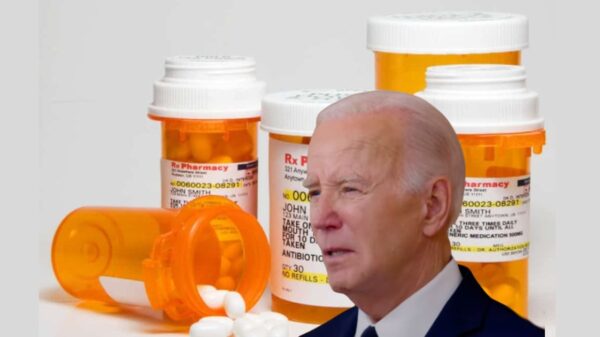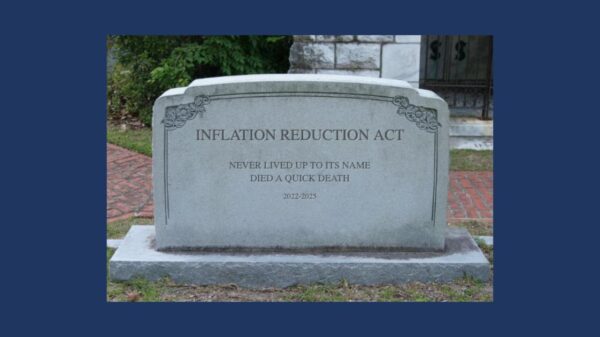On Friday, just days before the Iowa caucus, former U.S. Rep. John Delaney, D-Mary., who was urging the Democratic presidential field to stay away from socialism, ended his campaign for the White House.
Delaney’s campaign admitted there was no hope for Delaney to make an impact in Iowa which holds its caucus on Monday.
“This decision is informed by internal analyses indicating John’s support is not sufficient to meet the 15 percent viability in a material number of caucus precincts, but sufficient enough to cause other moderate candidates to not to make the viability threshold, especially in rural areas where John has campaigned harder than anyone. He strongly believes the Democratic Party should advance candidates with progressive values on the big issues of our time, but who are committed to governing with pragmatic, fact-based, bipartisan solutions. This approach – which is what successfully won back the House in 2018 – beats Trump, unifies our nation and gets things done. We have many candidates in the 2020 race, running in Iowa and otherwise, who meet these criteria. John does not want the good work of his campaign to make it harder for those like-minded candidates on the bubble of viability in many Iowa precincts to advance in the Iowa caucuses and garner delegates,” Delaney’s campaign announced.
Delaney, who had not been included in recent presidential debates, also weighed in on his decision.
“It has been a privilege to campaign for the Democratic nomination for president, but it is clear that God has a different purpose for me at this moment in time,” Delaney said. “I leave this race with a profound sense of gratitude to the voters who shared with me their hopes and concerns for our magnificent country, in admiration for the other contenders for the nomination and proud of the work we did to change the debate.”
Delaney continued his call for realistic economic solutions as he withdrew from the race.
“We need to provide workable solutions to the economic issues facing hardworking Americans, create opportunity for young people in all communities, restore a sense of unity and common purpose to our nation, and re-establish the United States as an engaged global leader. I believe our campaign was unique in its consistent focus on these four themes. Our economic, environmental and technological future is dependent upon the choices we make and the actions we take. For too long we have made bad choices and failed to act; we must change course,” he said.
“This race was never about me, but about ideas and doing what’s right for our nation. The unique and data-driven ideas that our campaign generated – on how to create a functional universal health care system, price carbon, advance trade, invest in rural America, cure disease, help workers, launch negative emissions technologies, reform education, and expand national service – are now ideas for the party and I will continue to advocate for them in my next chapter. In addition, I encourage the party to sharpen its focus on the growing opportunity inequality that exists in both rural America and struggling urban communities. The concentration of start-ups and investment capital in a small number of areas is troubling and smart public policy is needed to encourage entrepreneurs to start businesses everywhere. Smart public-private partnerships can encourage entrepreneurs to locate in small-town America and struggling inner cities,” he continued.
“Never bet against the United States of America. This is a remarkable nation full of wonderful and patriotic people. People who love their country, their neighbors and their families. People who work tirelessly, who innovate, and who give of their time and resources. People who care, deeply, about the character and decency of this nation. Because of them, we have every advantage any nation could possibly want to have in 2020, except for one problem: we are a deeply divided nation. The good news is that we can fix that problem, but we have to fix it together. Step one is to beat Donald Trump and restore decency to the office of the president. In many ways, this is all that matters and I am fully committed to supporting our nominee and fulfilling that mission. Step two is to get our government working for the American people again. Step three is to focus on the future and leave the world better than we found it. The Democratic Party must respond to this calling,” he said in conclusion. “Let’s stop the nonsense of unrealistic and divisive campaign promises and be the party the American people need – a decent, unifying, future-focused and common-sense party. And please don’t listen to the cynics, the naysayers and the dividers; while we have significant challenges and too many Americans are struggling, the world gets better every year and the United States of America has driven much of this progress – let’s keep it that way. Onward and upward and God bless America.”
Delaney had a very successful career in the private sector, co-founding Health Care Financial Partners (HCFP) and CapitalSource. He was elected to the U.S. House in 2012 and served three terms before deciding not to run again in 2018 to focus on his presidential bid.
Even with Delaney out, the field of Democratic presidential candidates includes former Vice President Joe Biden, former New York City Mayor Mike Bloomberg, U.S. Sen. Michael Bennet of Colorado, former South Bend Mayor Pete Buttigieg, U.S. Rep. Tulsi Gabbard of Hawaii, U.S. Sen. Amy Klobuchar of Minnesota, former Gov. Deval Patrick of Massachusetts, U.S. Sen. Bernie Sanders of Vermont, businessman Tom Steyer, U.S. Sen. Elizabeth Warren of Massachusetts, and businessman Andrew Yang.
Reach Kevin Derby at kevin.derby@floridadaily.com.


















